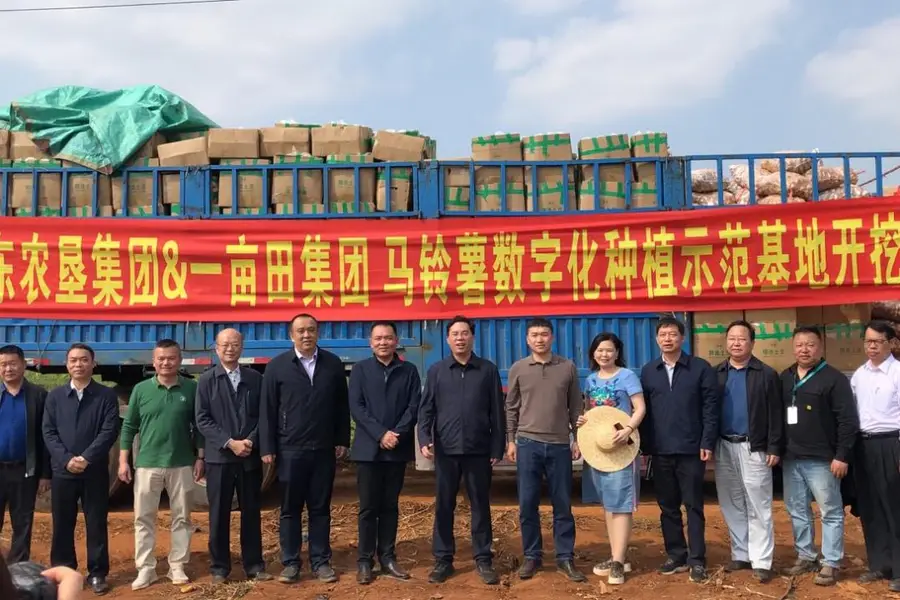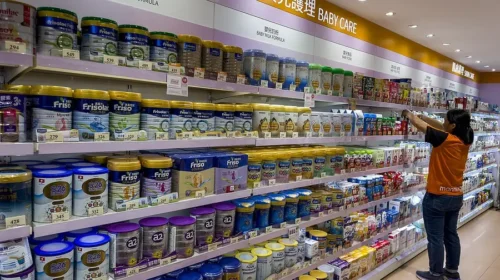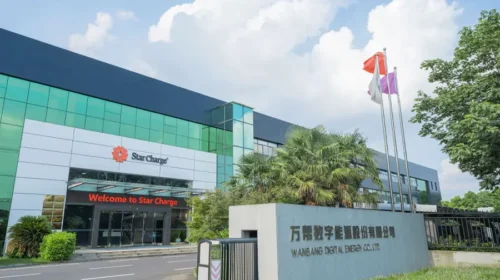Yimutian cultivates investors for China’s new agricultural revolution

The agricultural B2B marketplace operator has filed for a Nasdaq IPO, reporting its revenue declined last year as it engages in aggressive cost-cutting
Key Takeaways:
- Yimutian has filed for a Nasdaq IPO that could raise up to $23 million, as its cash runs dangerously low due to heavy spending
- The B2B marketplace operator’s revenue fell last year on cost-cutting, but it looks well placed to benefit longer term from China’s efforts to modernize its agricultural sector
By Doug Young
Agricultural B2B marketplace operator Yimutian Inc. is used to harvesting crops, or more precisely, to helping crop producers sell their harvests to buyers. But now the company is turning its sights to harvesting investor dollars through a Nasdaq listing that could raise up to $23 million, as its cash reserves run dangerously low.
The company, whose name translates roughly to “an acre of land,” looks quite good conceptually, boasting extremely high margins and a leading position in a space that China wants desperately to modernize. But its historically high spending – which Yimutian has been cutting aggressively in the last two years – means the company has been consistently cash-flow negative and money-losing, according to an updated prospectus filed last week.
Yimutian is also seeking a very aggressive valuation compared with other industry peers, which means its shares are likely to come under pressure if and when it completes its listing.
The company is quite typical of e-commerce and internet firms in China, which enjoyed a heyday for much of the first two decades of the 21st century as China’s online economy boomed. Yimutian has strong credentials in that area, founded by Deng Jianhong, who left his job as a product manager in the marketing department of internet search giant Baidu in 2009 to start his foray into agricultural e-commerce.
Back then, investors were happy to throw millions of dollars at such startups, regardless of their profitability, as China’s economy boomed and everyone was looking for the next Baidu or Alibaba. Deng took advantage of that environment to build up a platform that has become China’s largest agricultural B2B marketplace, which hosted 39 million merchants offering 21 million products for sale at the end of March.
The company appears to be in a sweet spot as China tries to transform its agricultural sector from one featuring millions of small family farms to a more modern landscape of megafarms using advanced planting and harvesting techniques.
Last month we wrote about another IPO candidate, Weichai Lovol, which detailed how its smart agricultural machinery was set to benefit from the modernization wave. That coming movement was detailed in two recent national plans, the “Plan for Accelerating the Construction of an Agricultural Powerhouse (2024-2035),” and the “National Smart Agriculture Action Plan (2024-2028).” Such plans often signal that Beijing will make big amounts of money and other resources available to companies and other entities that can help it achieve those goals.
Market data in Yimutian’s prospectus hints at a coming boom, noting China’s agricultural B2B e-commerce market is expected to grow 17.5% annually over the next five years – more than triple the GDP growth rate – to reach 284.2 billion yuan ($40 billion) in 2029. Yimutian looks well positioned to capture some of that growth, though its revenue is much smaller due to its status primarily as a middleman collecting fees for connecting buyers and sellers.
But such heady growth rates are notably absent from Yimutian’s own top line revenue, which has been falling since at least last year. The company’s revenue dropped 14% year-on-year to 161 million yuan in 2024 from 188 million yuan in 2023. And it continued to decline in the first quarter of 2025, dropping 12.6% year-on-year to 34.3 million yuan from 39.2 million yuan.
Cost cutting
The company wasn’t too specific on the reasons behind its declining revenue, vaguely blaming the trend on how it “strategically prioritized our agricultural sourcing and trading business, reallocating resources and budgets to accelerate our retail network expansion in key production regions.”
But the most likely explanation is probably related to the headier times we mentioned earlier when the company was founded in the 2010s and China’s economy was still booming. In those days, internet companies aggressively pursued market share at any cost, often recruiting less profitable customers simply to boost their user numbers, even as such practices drained their resources.
In fact, Yimutian’s gross margins are quite enviable, rising to 79.1% in the first quarter of 2025 from an already-respectable 73.8% a year earlier. The company’s gross margin for all 2024 was an even higher 81%, probably reflecting the fact that the first quarter of each year is a relatively weak one for trading in agricultural goods.
But the company’s marketing, administrative and R&D expenses are quite high, roughly equal to its entire revenue last year. As a result, Yimutian has been consistently cash-flow negative, resulting in a loss of 34.9 million yuan last year and another 2.64 million yuan loss in this year’s first quarter. Here, however, we should note that both loss figures are big improvements over the year-ago periods.
Yimutian seems to be finally waking up to the fact that the heady days of the 2010s are in the past, and is aggressively cutting costs in a bid to become profitable. That drive is most apparent in its administrative spending, which the company has slashed by more than half since the start of 2024. A big part of that has come from headcount reductions, with Yimutian’s total staffing down by more than a quarter to 573 at the end of March from 789 at the end of 2023.
The consistently high spending has taken a toll on Yimutian’s cash reserves, which fell to just 632,000 yuan at the end of March, or less than $100,000, from an already-low 2.77 million yuan at the end of last year. There’s no major discussion of the danger of closure in the prospectus, so presumably the company has access to credit that can keep it going for at least the next year or two while it slims down its spending in a bid to become profitable.
Yimutian’s 2024 revenue and its targeted valuation of between $467 million and $572 million translate to a price-to-sales (P/S) ratio of between 21 and 26, which looks quite aggressive. By comparison, B2B e-commerce furniture seller GigaCloud (GTC.US) trades at a ratio of just 0.86. And even e-commerce giant Alibaba (BABA.US; 9988.HK) trades at a ratio of just 2.13, though its 40% gross margin is about half of that for Yimutian.
The bottom line is that Yimutian needs to bring its costs under better control, most likely by ditching its less profitable customers and rationalizing its staffing. If it can do that and maintain its relatively high margins, it could be well positioned to thrive in the future if and when it returns to revenue growth and eventual profitability.
To subscribe to Bamboo Works weekly free newsletter, click here





